Curtain Call
Moments from Café Onda 2015
January 1st, 2016 will mark eighteen months since the official launch of Café Onda, the online journal of the Latinx Theatre Commons (LTC). While the LTC has traveled across the country advocating for Latina/o theatre through convenings such as Encuentro 2014: A National Latina/o Theatre Festival, the Carnaval of New Latina/o Work 2015, and the Dallas Regional Convening, Café Onda has kept its finger on the pulse of the New American Theatre via this online stage. We wish to thank you, our online community, contributors, and allies who have helped situate us as the go-to source for Latina/o theatre. Thank you for participating in the dialogue around Latinidad in the 21st century. Let’s continue to build alliances, strengthen our conversations, increase our visibility, and update the narrative of the American Theatre. For now, we leave 2015 by offering you some of our favorite Café Onda moments from this year.—The Café Onda editorial board.
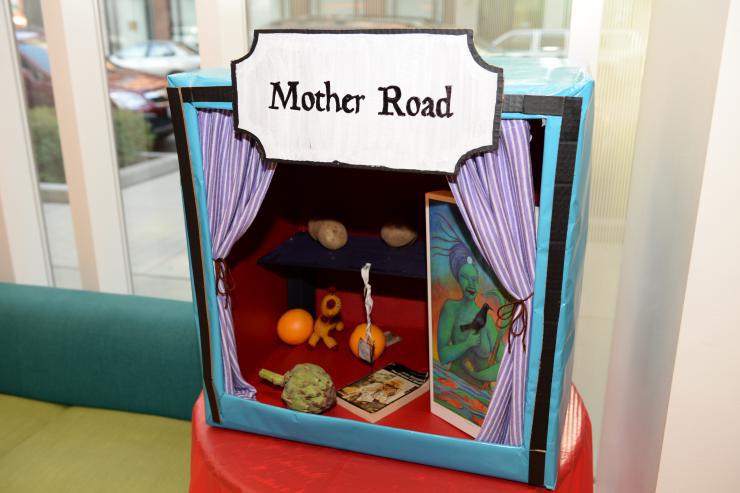
***
I fell in love with theatre in the 1980s, the age of the auteur director: Peter Sellers, Robert Woodruff, Lee Breuer, Joanne Akalitis. As a grad student I was schooled by Des McAnuff, then Artistic Director of the La Jolla Playhouse, who led with explosive vision, rock star charisma, and intense powers of persuasion. That’s how shit got done, as far as I was concerned—through fierce and singular leadership.
I remember sitting in a tech at another large regional theatre a few years after grad school watching the artistic director hit the climactic moment of the show, call hold, hop up onstage and shout out into the house “OK, so what should we do here?” I was horrified! I called a friend from school: “this guy doesn’t know what he’s doing! How is he in charge?!”
Cut to May 2012 and playwright Karen Zacarías assembles a group of Latina/o theatre artists (via HowlRound) at Arena Stage to discuss the state of Latina/o theatre. Amongst the Arena staff in attendance was that nutty Polly Carl. She had just launched this thing called HowlRound, and called it a “commons.” Whatever.—Confessions of a Convert by Lisa Portes
***
Matthew: Theatre happened very late for me. I really hadn’t seen a play until I was a senior in college. I stumbled upon an Intro to Playwriting course at UC Santa Barbara, and early in the semester my professor pulled me aside and told me that playwriting was something I could really do, so I stayed an extra year and switched my major to theatre. To this day, I still feel like an outsider, though.—Cafecito: Matthew Paul Olmos by Teresa Marrero
***
Milta: I like to think that we’re on the cusp of something. There’s momentum about making our presence known. We’re here. We’re Latino playwrights and theatre professionals. Eventually there’s going to be a tipping point and more of our stories will become part of the American canon. I write what I know and for now I focus on Latinos because going through school, I longed to read about my experience. I was born in El Salvador and raised in the US. Growing up as 1.5 generation Salvadorian-American, I didn’t know much about my culture outside of my home life. Nor did I know Mexican-American history. While in the Creative Writing Department at San Francisco State University, I sought out the Raza Department because I hardly saw myself reflected in the literature I was reading. I enjoyed the American canon, but after a while I wanted to read about people like me. When I found Latino literature, Resistance literature, and the North and South American experience, it was like meeting myself for the first time. Maybe I’ll get over that and focus on my multicultural experience, or my urban experience. I believe that the more specific you write, the more universal it becomes. I see plays that aren’t Latino all the time. Why shouldn’t my work speak to a broad audience? What if theatre becomes a little more balanced?—Cafecito: Milta Ortiz by Emily Aguilar Thomas
What were your favorite Café Onda moments from 2015?
Martín Zimmerman: I've been fortunate enough to see university faculty lead efforts to diversify departments by programming work in which they needed to go outside their known actor pool to cast. These faculty just firmly believed they would find good actors of color to fill those roles if they worked hard enough. And 100 percent of the time they found those actors of color.—Should Latina/o Roles Be Cast with Non-Latina/o Actors? by Martin Zimmerman, Marisela Trevino Orta, Magdalena Gomez, Irma Mayorga, and Elaine Romero
***
In both of these plays and productions I was left wondering about representation and context. I often explore the question, Who can tell what story? with my theatre education students, as they consider what stories they have a right and/or responsibility to tell on future school stages. I can’t help but look at this same question in relation to these two premiere productions, as none of the lead artists (the playwrights and directors) are young Latinas themselves. Saar Rios, who has written Latina protagonists a few times before, says of his own identity in relation to his play, I have been surrounded by strong women. But I had to be creative in thinking about the leap from strong women to strong girls. That is a little farther from my experience. When I am writing, I don’t think about who I am. I just think about telling the story. If I am not the right person to tell the story, the audiences will let me know.—Young Latina Protagonists: New TYA Plays put Mexican American Girls Center Stage by Roxanne Schroeder-Arce
***
Diane Rodriguez: Our country is made up of so many Latinas/os, and we obviously need representation. There are so few who have had the opportunity to represent us. I am a Latina of Mexican descent, which makes a big difference. And I am from the Southwest—from California. My understanding is of being from la gente, but also maneuvering through. There have been great opportunities that have come out of keeping my nose to the grindstone.—Interview with Diane Rodriguez: Reflections on a Career Well-Spent by Beatriz Rizk
***
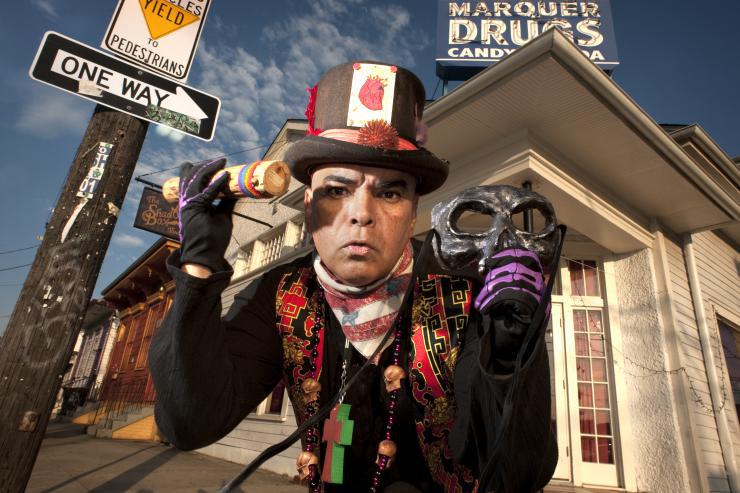
For the past ten years, I have been obsessed with telling the most neglected truth of the rebirth and recovery of New Orleans.
Immigrant men and women gave of their sweat, blood, and some of their lives to rebuild an ungrateful city that exploited their labor—as easily as it exploited enslaved Africans when “cotton was king.” This is truth...
Many immigrants still remain, trying to make a life for themselves and their families in a city that often renders their suffering invisible. Immigrants occupy a parallel universe, working in the shadows of a city and country that exploits their labor and demonizes them simultaneously. Theirs is a bizarre science-fiction reality, but one that keeps the engines of unfettered capitalism going.—Latinos and the Rebirth of Post-Katrina New Orleans by Jose Torres-Tama
***
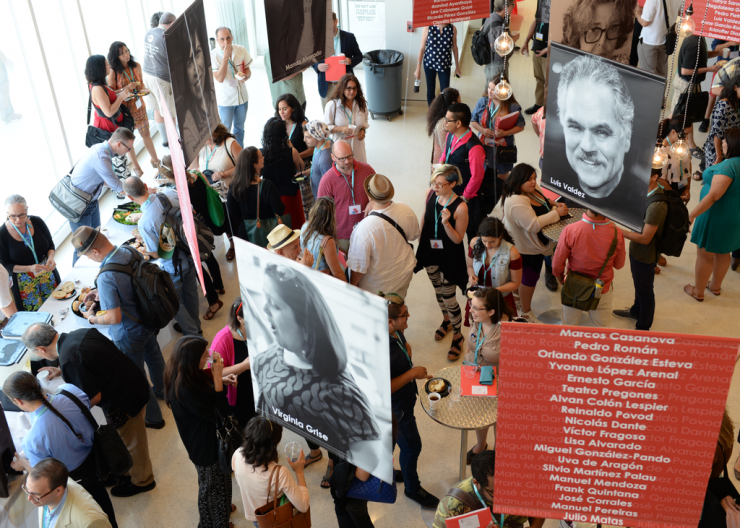
The third consecutive annual event sponsored by the Latinx Theatre Commons, The Carnaval was part of an ongoing national project to bring together Latina/o theatre artists to advance conversation about the New American Theatre. The LTC National Convening of 2013 and the 2014 Encuentro both illustrated that Latina/o theatre is a vibrant part of the fabric of American theatre (For more on past LTC events, go here). Responses from these formative events rapidly evolved the path of inquiry about furthering allied engagement and committed action: How to extend the national conversation to make visible to the larger American theatre what has been so clearly evident over the course of these two years of national conversations about Latina/o theatre? How to cultivate not only the recognition of the work but also the investment in producing Latina/o playwrights? These were the springboard questions that launched the format for Carnaval 2015.—Showcase of the New American Theatre: Latinx Theatre Commons’ Carnaval 2015 by Tiffany Ana Lopez
***
In the fall of 2014 the Los Angeles Theater Center and the Latino Theater Company, under the leadership and vision of Valenzuela and in concert with the Latinx Theatre Commons (LTC) organized and hosted a major event, the Encuentro 2014, a month-long festival of Latina/o theatre companies from across the country and Puerto Rico. I dare to say that everybody in that Encuentro was there because of the tenacity of the pioneers, hosting festivals and workshops in order to grow aesthetically as well as politically. This was the first festival of its kind, the result of years of fund-raising and collaborating with the Latinx Theatre Commons Steering Committee. From flatbed trucks and tin can lighting to this incredible facility; from mimeographed fliers to web sites y todo, we’ve come a long way, baby!
Many of the artists and scholars involved in the Encuentro 2014 returned to their respective companies, universities, and communities with a renewed sense of purpose. We continue to learn from one another in the tradition of the earliest festivals. The times have changed, the technology has changed, but the people remain people and this Encuentro and the recent LTC Carnaval of New Latina/o Work in Chicago, are living proof that the future of Latina/o theatre is in very good hands.—The Legacy of Luis Valdez and El Teatro Campesino: The First Fifty Years by Jorge Huerta
***
What were your favorite Café Onda moments from 2015?

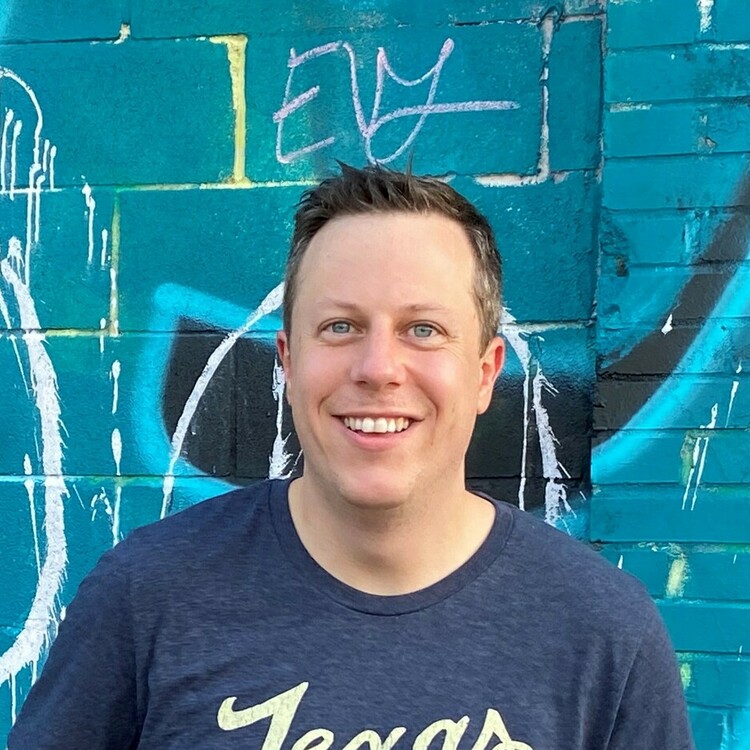
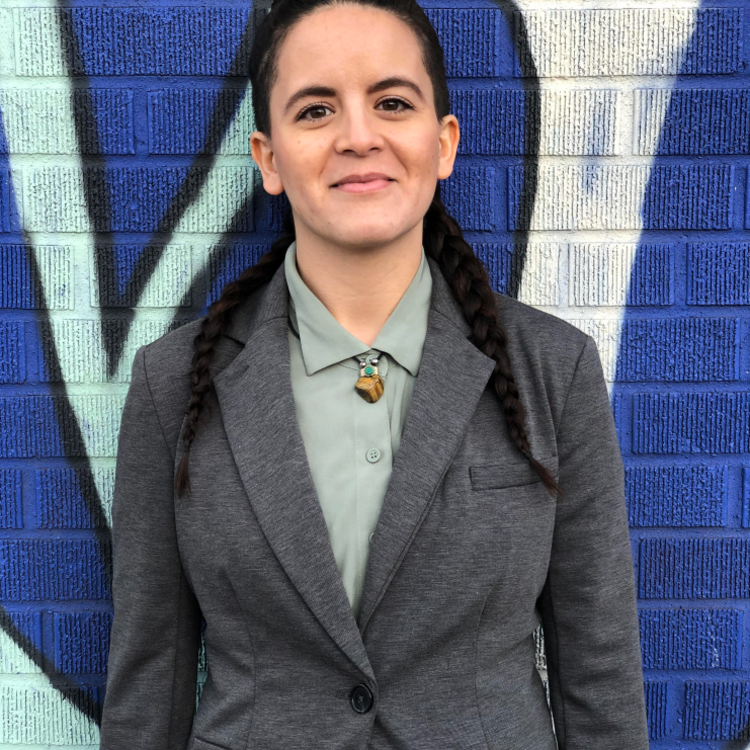
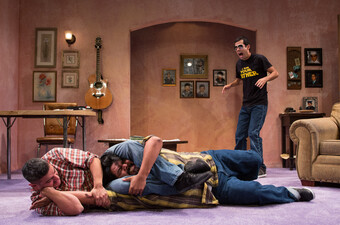


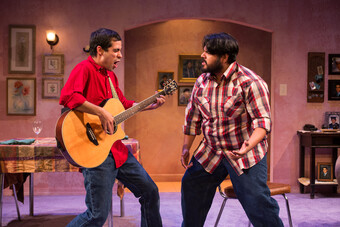


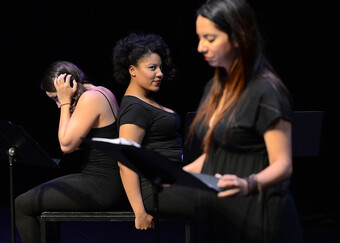

Comments
The article is just the start of the conversation—we want to know what you think about this subject, too! HowlRound is a space for knowledge-sharing, and we welcome spirited, thoughtful, and on-topic dialogue. Find our full comments policy here
Mil Gracias for the "Cafe Onda" shout out and remembering my contribution to this national dialogue. As an Ecuadorian immigrant employing performance art and experimental theater practices, it is an honor to be counted in this pan-Latin aesthetic round-up of our creative voices. Kudos to the "Cafe Onda" editors for offering us a platform to express our perspectives, and throw down all the stories of our growing "Latinidad" on the stages of "los estados hundidos." Our voices and our people's stories on national stages are even more important than ever because we are all "Americans, South and Central tambien!" Let's wake up and smell the "Cafe Con Leche" in "Cafe Onda!"
My favorite Cafe Onda moment was working on the "Should Latina/o Roles Be Cast with Non-Latina/o Actors?" piece with Trevor to reach out to playwrights--this gave me a great excuse to meet (virtually) a playwright I've known about for a while. Additionally, I really enjoyed reading what my peers were thinking about on this issue and to also see the blog post by Alvaro Saar Rios which continued the conversation.
Should
Latina/o Roles Be Cast with Non-Latina/o Actors? - See more at:
http://howlround.com/curtai...
What a wonderful overview of the year! So grateful to all of you for your hard work and commitment!
Trevor & Em,
Thank you for sharing these great moments and memories from our recent past. Reading this blog is a wonderful way to say g-bye to this year and usher 2016 into existence! Happy New Year to you both. Great work!
Nice recap, Trevor! My favorite Café Onda moment is when the editorial members expanded to include you and Emily! The best thing since... dark chocolate! Thank you for your hard work and vision.
Emily and I are glad people are enjoying the recap of Cafe Onda's 2015. We are looking forward to big things in 2016 with you and the rest of the editorial board!!